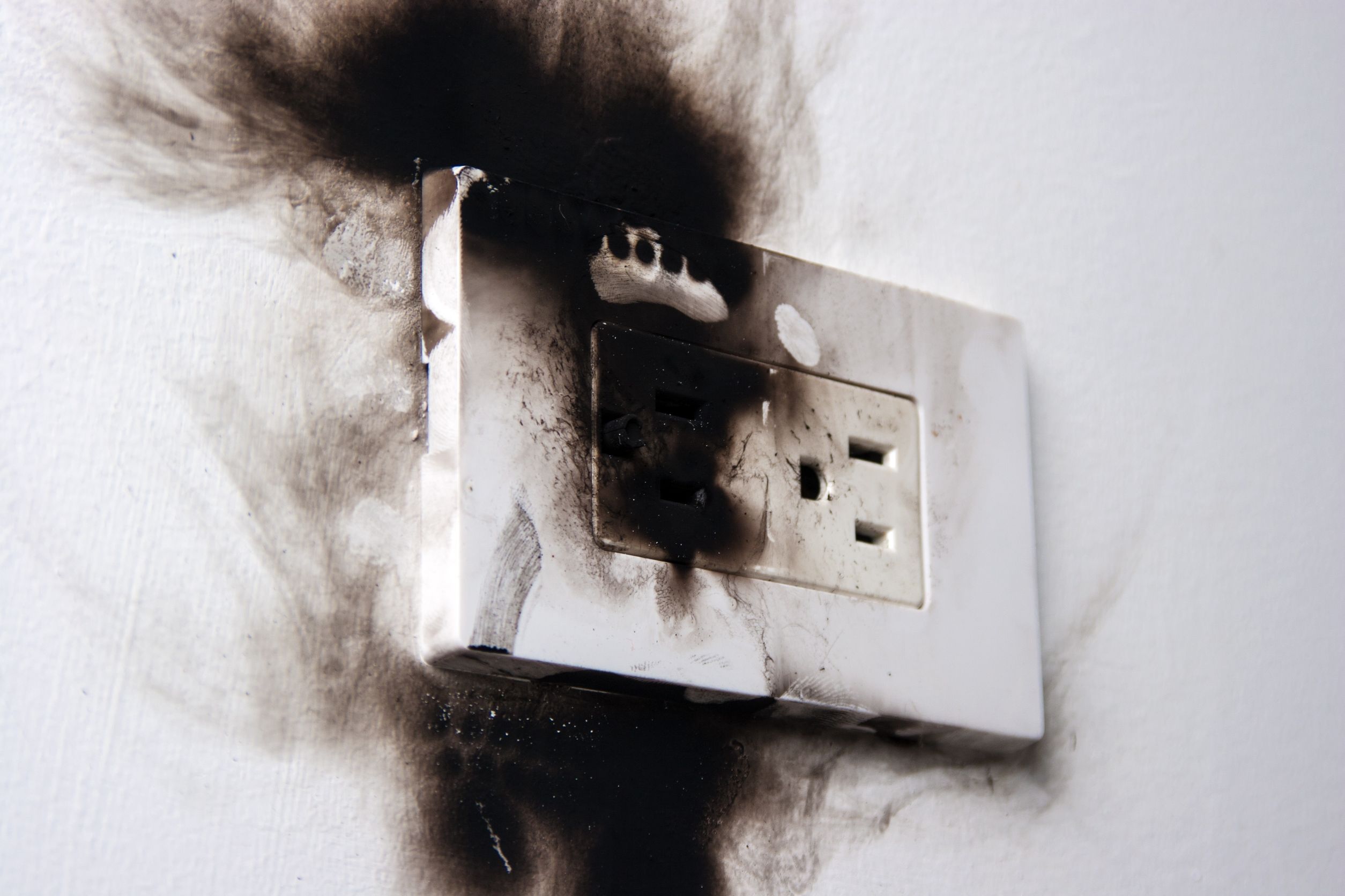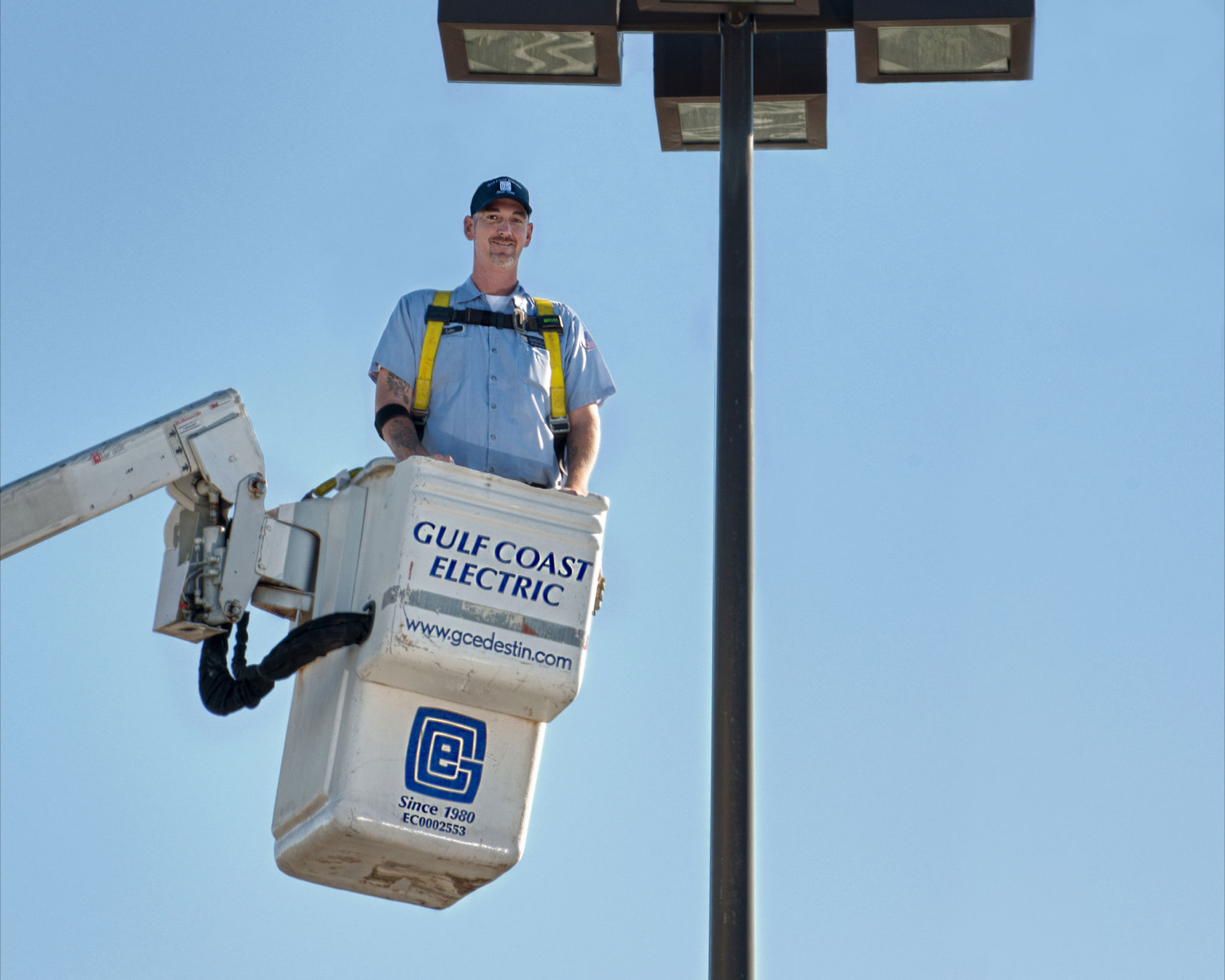Understand Why Your Outlet Is Sparking
Electricity keeps our homes safe and comfortable, but it isn’t without its dangers. You’ve likely seen occasional plug sparks when something gets plugged into an outlet. A sparking outlet isn’t always a sign of serious problems, but with home electrical fires accounting for nearly 500 deaths each year, it’s better to err on the side of caution.
Gulf Coast Electric places safety first when it comes to our emergency electrical repair services. We want our customers to remember that no spark is worth overlooking, no matter how small. Check out these three reasons your electrical outlets may be sparking so you can make sure your home and family are safe.
1. Short Circuits Can Lead To Sparks
A short circuit is an abnormal circuit that a current flows through with little resistance. It results from the contact of components, or nodes, where the resistance is normally much greater. Some potential causes of short circuits are damaged wiring and faulty electrical parts. In addition to sparks, these might produce a burning smell, cause flickering lights or trip your circuit breaker.
Short circuits are dangerous because a circuit with low resistance can easily overheat and melt the insulation covering the wires. This can damage your appliances, but that’s far from the worst possibility.
When an electrical connection is made with the outlet, exposed wires can cause a spark which might result in a fire. Being so hazardous, a short circuit needs to be handled by a professional electric company like Gulf Coast Electric to ensure it’s properly taken care of.
2. Water Creates Electrical Problems
Not a lot of good can come from mixing water and electricity. If your outlet comes in contact with water, you may encounter a number of electrical problems — including sparks. Even something as small as a spill or water leak can trigger it.
To prevent your outlet from sparking if it comes in contact with water, you can have a ground fault circuit interrupter installed. This device monitors circuits and will detect any imbalance caused by an unintended current path.
A ground fault circuit interrupter will cut the power to an electrical outlet if water is detected, which can help prevent a disaster. These interrupters can make moisture-heavy areas much safer from electric sparks and the problems they cause.
3. Power Can Cause Outlets To Spark
Sometimes you don’t have to worry about sparks. A home’s electricity works by running through all available circuits and then back out to the main electrical grid, all without any interruptions. When we plug something in or turn something on, the electricity rapidly diverts to the outlet in use and causes a quick spark.
This kind of spark is comparable to a spark from static electricity and shouldn’t be worried about. If you’re concerned that the spark is caused by a bigger issue, call Gulf Coast Electric so our team can take care of it for you.
Know Your Sparks
With how many ways electrical sparks can appear around your home, how can you tell the safe ones from the dangerous? The wisest approach is to treat every spark with caution and turn to the professionals when necessary.
Even so, with a good amount of knowledge, you can be more prepared to identify these diverse sparks.
Small Sparks
The least dangerous sparks coming from wall outlets are usually blue-colored, small and very quick. You might see these when plugging something in.
Though individual sparks of this kind aren’t always concerning, if repetitive, they could suggest a larger, more dangerous problem. Call Gulf Coast Electric to assess the problem and ensure your safety.
Hazardous Sparks
An orange spark when you’re plugging something in can be life-threatening. In fact, yellow, orange and red sparks are all more dangerous and are suggestive of bigger issues. Water damage, dying circuits and broken outlets are just some of the possible causes.
These kinds of sparks can quickly cause electrical fires, so they should be treated with appropriate caution. Tampering with electrical systems yourself can be fatal, so once again, bring in the professionals to get the job done safely and efficiently.
Protect Yourself From Electrical Sparks
Because they can appear for various reasons, giving sudden outlet sparks proper attention is how you can best ensure your safety. It’s imperative that homeowners take proper steps to protect themselves and their homes from electrical hazards.
An important step to take is contacting a professional when you notice a problem. However, you can also use the following proactive strategies to maximize safety and reduce the risk of problems with your plugs:
• Avoid overloading your outlets and try to distribute your devices, as overloading can cause overheating and eventually sparks.
• Routinely check your outlets, wires and cords for signs of wear and tear.
• Turn off electronic appliances when not in use, which will also help to conserve energy.
• Try to keep flammable materials away from outlets — this can include curtains, furniture, paper and any flammable liquid.
• If you have children at home, tamper-resistant (TR) outlets can prevent them from inserting things they aren’t supposed to into the outlets.
The most effective way to safeguard your home if you’re experiencing electrical sparks is to reach out to Gulf Coast Electric. Our expert electricians will help ensure your home is protected from electrical hazards.
Plug Into Superior Service
Electricity is a helpful asset we tend to rely upon, but it can also be a hazard. While sparking might be the byproduct of regular power changes, it can also be a sign of something more serious. If your outlets are coming into contact with water or are short-circuiting, you may be at risk for an electrical fire.
To keep your home safe, make sure only a trained professional works on your home’s electricity. Gulf Coast Electric is always here to help, so don’t hesitate to call today!











